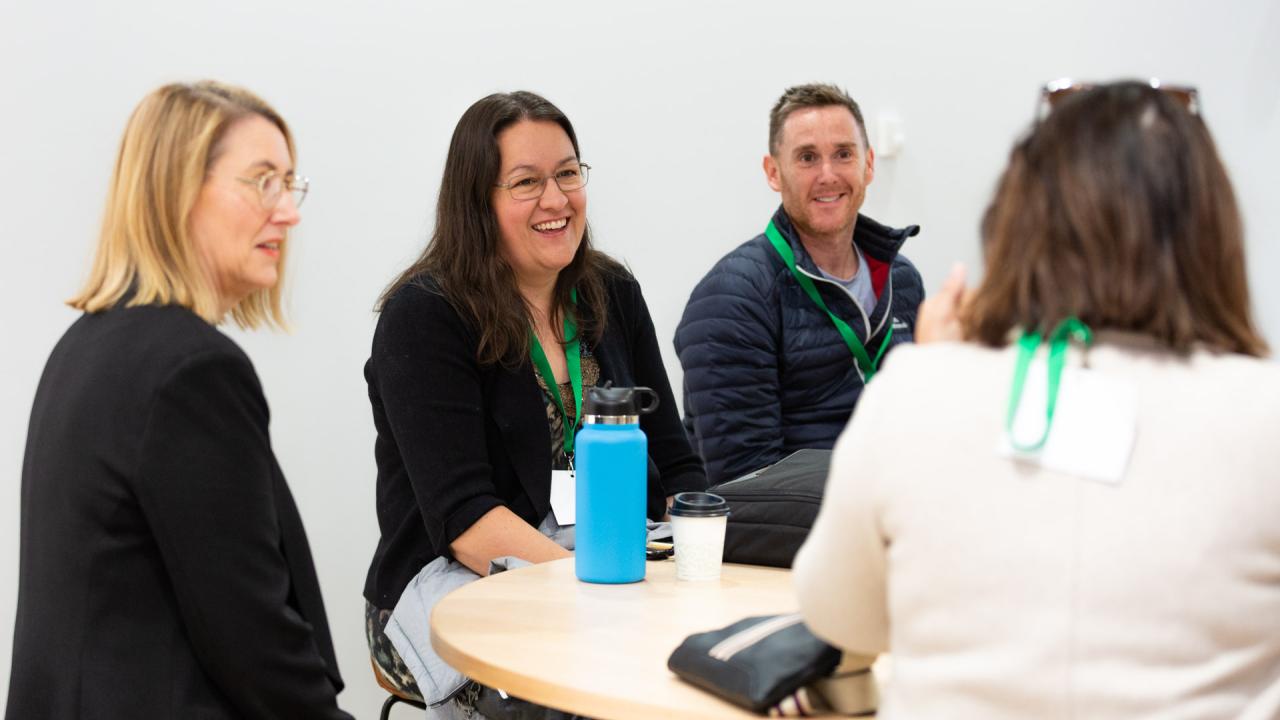Collaborative Complex Problem Solving

It is important to understand the distinction between complex and less-complex problems. Complex problems are those that cannot be solved by existing routines, or including those where routine fixes have proved ineffective. Problems are complex when there is considerable uncertainty about the path to solving them.
Collaborative complex problem solving is one of 3 capabilities required for excellence in leading improvement in teaching and learning. Capability in complex problem solving is key to leadership effectiveness, for leaders cannot achieve their improvement goals if they cannot solve the problems that stand in the way of success (Mumford et al., 2000; Patuawa et al., 2022).
This program provides a rich, research-based, and flexible model of problem solving that teaches leaders:
- what makes a problem complex
- how complex problems can be solved through a systematic, iterative 5 stage process
- how to collaborate with others in ways that progress the problem while building trust with those involved.
Audience
Designed for school principals or assistant principals, who have the option to invite up to 3 participants from their leadership teams such as:
- leading teachers
- learning specialists.
Department of Education corporate staff can attend if joining a school leadership team.
School sectors
This program is available to the following school sectors:
- Victorian government
- Catholic
- independent.
Some content may contain information aligned with Department of Education priorities or initiatives.
Facilitators
Distinguished Professor Emeritus Viviane Robinson is a Director of Viviane Robinson Consulting which specialises in educational leadership policy and the design and development of educational leadership programmes. Her expertise in collaborative complex problem solving is based on a 30-year research programme, conducted while Professor at the University of Auckland, on the skills, knowledge and dispositions required for excellence in educational leadership.
Dr Jacqui Patuawa holds a national portfolio leadership position and is a senior education consultant at Evaluation Associates. She, amongst her many responsibilities, leads the global Leading by Learning program. Jacqui brings years of experience in schooling improvement programs. Her expertise in collaborative complex problem solving is based on her practical work with middle leaders, principals, principal mentors, system leaders and her recently completed doctoral research.
Professor Emeritus Viviane Robinson and Dr Jacqui Patuawa will deliver these sessions alongside Academy facilitators.
Structure
This full day face to face program covers 3 modules that utilise the collaborative complex problem solving model and stages:
- Module 1 delves into the intricacies of problem nature and complexity, offering foundational knowledge that underpins the stages.
- Module 2 transitions from theory to participants' own practice, encouraging participants to apply the collaborative complex problem solving model to their own on the job professional challenges.
- Module 3 focuses on introspective learning, prompting participants to use explicit standards of practice to reflect on and develop their competencies in navigating the stages.
Learning outcomes
By successfully engaging in this program, you will be able to:
- demonstrate understanding of the nature of problems and what makes them complex
- accurately explain the 5 stages of collaborative complex problem solving
- apply the model to an important on the job problem in your area of responsibility
- accurately self-assess your strengths and weaknesses in applying each of the 5 stages of collaborative complex problem solving
- demonstrate effective collaboration and, if needed, plan for further learning of the requisite interpersonal skills.
Fees and financial support
| Government school | Non-government school | |
|---|---|---|
| Fee per participant | Fully subsidised | $150 (excl. GST) |
Department of Education fully subsidises Victorian government schools.



